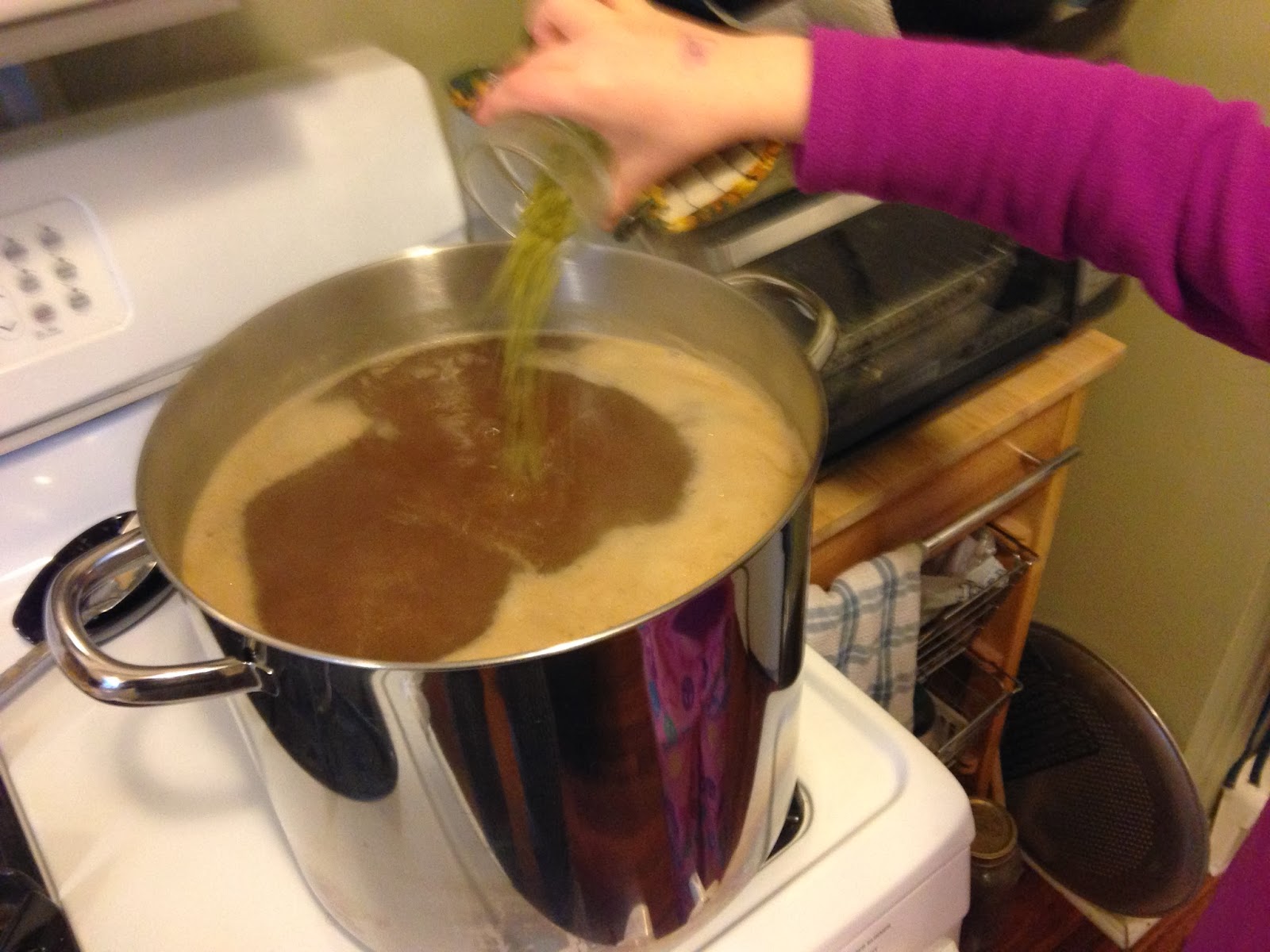I have to admit: Scottish ales are some of my favorite beers. I only discovered them about a year ago, and I honestly cannot remember the first one I tasted that I fell in love with. But if you ever catch me daydreaming, I'm likely thinking about how to brew the perfect Scottish ale.
Why do I love this style? This is a beer that is very malty. It's about as far from a hoppy IPA or pale ale as you can get. Scottish ales are not bitter and have almost no hop presence. The malt will often have notes of caramel and sometimes toffee, and may have a very small smokiness. The fermentation profile is usually clean, with little or no flavor contribution from the yeast.
When I'm in the mood for malt, I'm in the mood for a Scottish ale.
Scottish ales usually come in three strengths: Scottish Light 60/- (read, "sixty shilling), Scottish Heavy 70/-, and Scottish Export 80/-. The strengths were historically identified by their cost per hogshead, a type of cask that held about 63-65 US gallons. In today's designations, a 60/- is under 3.2% alcohol by volume, a 70/- goes up to about 4%, and an 80/- can top out at about 5%.
There is another type of Scottish beer that goes by the name Strong Scotch Ale, or Wee Heavy. They're usually between 6.5% and 10%, and have even more malty sweetness than the smaller ales.
As much as I love these beers, I've only tried my hand at brewing two of them: a Scottish Heavy 70/-, and a Wee Heavy. I was relatively satisfied with both beers, but both had their weak points. On the 70/-, the body was thin and the malt backbone didn't stand out as much as I was hoping. The Wee Heavy is a nice winter warmer at 9% abv, but the alcohol presence is a bit rough and gets in the way of the other flavors.
So, the way I saw things, it was time to brew another Scottish ale! This time, I made a few changes to the biggest ingredient - water - in order to give it more body and accentuate the maltiness that I crave.
The brew day was uneventful. Which is to say that it provided just the relaxation that I needed.
Starting with almost 6 lbs. of unmilled grains.
Daddy's little helper with a hop addition to the boil.
At the end of a 4-hour brewing session, 3 gallons of wort!
Actually, 3 gallons and 3 ounces to be precise, but who's counting?
In just a few days it'll be done fermenting, but I'll allow another 2-3 weeks for conditioning while the flavors all blend and stabilize. Then bottling, followed by 3-4 weeks of bottle conditioning.
This one's going to be difficult to wait for!



No comments:
Post a Comment